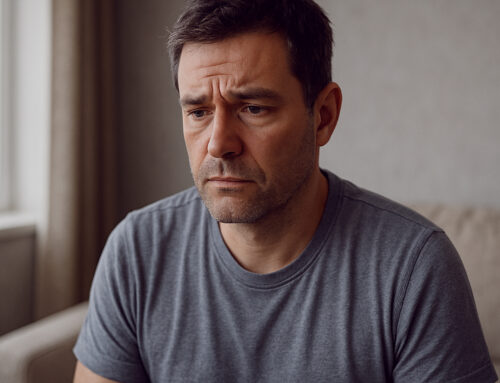Depression can feel overwhelming, isolating, and exhausting. If you’re struggling with persistent sadness, loss of interest, or difficulty managing daily life, you might be wondering: Do I need therapy for depression? The answer isn’t always straightforward, but understanding the signs, treatment options, and benefits of therapy can help you make an informed decision.
Understanding Depression: More Than Just Sadness
Everyone experiences sadness from time to time, but depression is different. It’s a persistent mental health condition that affects your mood, thoughts, and even physical health. Symptoms vary but often include:
- Constant sadness or emptiness
- Loss of interest in activities once enjoyed
- Changes in sleep or appetite
- Difficulty concentrating
- Feelings of guilt, hopelessness, or worthlessness
- Fatigue or lack of motivation
- Physical symptoms like headaches or digestive issues
- Thoughts of self-harm or suicide
If these symptoms last more than two weeks and interfere with daily life, it’s time to consider professional help.
Can I Manage Depression on My Own?
Mild depression can sometimes improve with lifestyle changes and support from friends or family. Some self-help strategies include:
- Exercise – Regular movement can boost mood by increasing serotonin and endorphins.
- Healthy diet – Balanced nutrition supports brain function and energy levels.
- Sleep hygiene – Prioritizing rest can improve mood regulation.
- Mindfulness and meditation – Practicing awareness can help manage negative thoughts.
- Journaling – Writing down feelings can provide clarity and relief.
- Social support – Talking to trusted loved ones can reduce feelings of isolation.
However, if these methods aren’t helping or your symptoms are getting worse, therapy may be the best next step.
Signs That Therapy Might Be Right for You
Not sure if therapy is necessary? Consider these questions:
- Are your symptoms interfering with daily life? Struggling to work, maintain relationships, or complete everyday tasks may indicate a need for professional support.
- Have you tried self-help strategies without success? If lifestyle changes haven’t improved your mood, therapy could provide new coping mechanisms.
- Do you feel stuck in negative thought patterns? Therapy helps identify and challenge distorted beliefs that contribute to depression.
- Are you withdrawing from others? Isolation can deepen depression, and therapy can help rebuild social connections.
- Are you experiencing suicidal thoughts? If you’re thinking about self-harm, seek immediate help by calling 988 (Suicide & Crisis Lifeline) or speaking to a mental health professional.
How Therapy Helps with Depression
Therapy provides a structured, supportive environment to work through depression. It helps you:
- Understand triggers and patterns that contribute to depressive episodes
- Develop healthier coping mechanisms for stress and emotions
- Improve relationships by addressing communication and boundary-setting
- Challenge negative thought patterns and replace them with realistic perspectives
- Regain motivation and confidence to engage in daily activities
Types of Therapy for Depression
There’s no one-size-fits-all approach, but some evidence-based therapies include:
Cognitive Behavioral Therapy (CBT)
- Helps identify and change negative thought patterns
- Teaches practical coping strategies for managing emotions
Interpersonal Therapy (IPT)
- Focuses on improving relationships and social support
- Helps navigate life transitions and conflict
Psychodynamic Therapy
- Explores past experiences and unconscious patterns that contribute to depression
- Encourages self-reflection and emotional insight
Dialectical Behavior Therapy (DBT)
- Useful for those struggling with intense emotions and self-harm urges
- Teaches mindfulness and emotional regulation techniques
What If I’m Not Ready for Therapy?
Seeking therapy is a personal decision, and it’s okay if you’re not sure yet. You can start by:
- Continue Research on depression and mental health
- Joining a support group for people with depression
- Talking to your primary care doctor about your symptoms
When to Take the Next Step
If depression is making it hard to function, therapy is worth considering. You don’t need to wait until things get worse—early intervention can make a significant difference. Seeking help isn’t a sign of weakness; it’s a step toward feeling better.
If you’re struggling and unsure where to turn and feel like you may need therapy for depression, consider reaching out to Triony to discuss your options 888.689.1432. You deserve support, and help is available.
Schedule consultation
Building a Foundation of Trust and Support
"In the midst of chaos, there is also opportunity." At the core of our services lies a deep commitment to creating a safe, supportive environment. We believe that a strong support system is crucial for healing and growth. Our team of compassionate professionals is dedicated to walking alongside you, offering guidance and understanding at every step of your journey.





